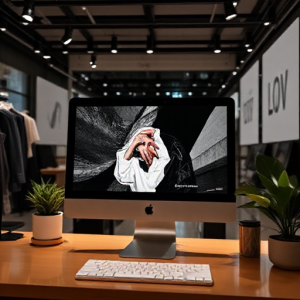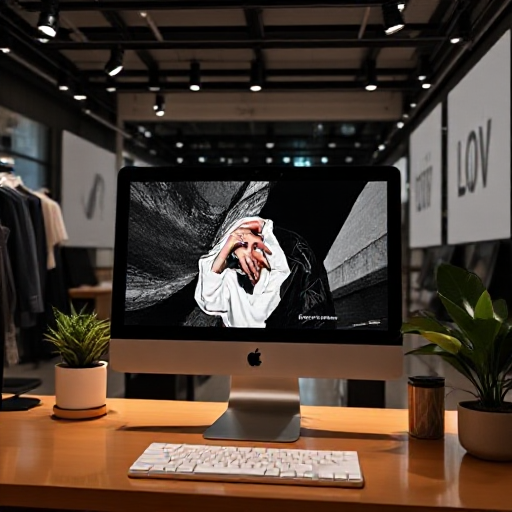
The fashion industry is highly competitive, and to succeed in this fast-paced market, brands need to leverage the best tools and platforms to promote their collections, engage with customers, and boost sales. Fashion marketing has evolved from traditional ads to more personalized, creative, and data-driven approaches. From social media to influencer collaborations, there are a variety of marketing platforms available that can help fashion brands establish their presence and grow.
In this article, we will explore the best fashion marketing platforms that offer unique features and benefits to help fashion brands effectively connect with their target audience and stay ahead of trends.
1. Instagram
Instagram has long been the go-to platform for fashion brands, with over 1 billion monthly active users, a highly visual layout, and a culture built around aesthetics and influencers. Fashion brands leverage Instagram’s tools to showcase their collections through posts, stories, reels, and shop features.
Key Benefits for Fashion Brands:
- Highly Visual Platform: Ideal for sharing visually appealing content such as lookbooks, runway shows, behind-the-scenes, and new arrivals.
- Influencer Partnerships: Instagram is the hub for fashion influencers. Collaborating with influencers on Instagram is one of the best ways to reach targeted audiences and drive sales.
- Instagram Shopping: Brands can create an in-app shopping experience, allowing users to purchase products directly from posts.
- Engagement Features: Tools like Instagram polls, questions, and the ability to use hashtags increase interaction with followers.
2. Pinterest
Pinterest is another essential platform for fashion marketing. With over 450 million monthly active users, it’s not just a place for inspiration; it’s a powerful tool for converting users into customers, especially for fashion brands.
Key Benefits for Fashion Brands:
- Pin Your Collections: Brands can create boards for different seasons, collections, and style inspirations.
- Targeted Advertising: Pinterest Ads offer fashion brands the opportunity to run targeted campaigns based on users’ search behavior and interests.
- Visually-Driven Platform: Similar to Instagram, Pinterest thrives on aesthetically pleasing imagery, making it perfect for fashion marketing.
- Long-Term Engagement: Content on Pinterest has a longer lifespan compared to other platforms. Pins can remain relevant for months, giving fashion brands continuous visibility.
3. TikTok
TikTok, known for its viral videos, has become one of the most powerful marketing platforms, especially for brands targeting younger audiences (Gen Z and millennials). Fashion brands have successfully used TikTok to create viral challenges, behind-the-scenes looks, and influencer collaborations.
Key Benefits for Fashion Brands:
- Viral Marketing Potential: The algorithm is designed to promote content that resonates with users, giving even smaller brands the chance to go viral.
- User-Generated Content: TikTok is highly interactive, encouraging users to create their own content using branded hashtags or challenges, making it easier for fashion brands to go viral.
- Creative Flexibility: Fashion brands can experiment with short, fun, and creative videos, including fashion shows, styling tips, and how-to tutorials.
- Influencer Collaborations: TikTok influencers can bring authenticity and credibility to fashion brands, especially those trying to connect with Gen Z.
4. Facebook
Though newer social platforms have gained traction, Facebook remains a vital tool for fashion brands, especially for building a community, running targeted ads, and offering customer service.
Key Benefits for Fashion Brands:
- Targeted Ads: Facebook offers highly targeted ad campaigns based on demographics, interests, and behaviors, allowing fashion brands to reach a highly specific audience.
- Facebook Marketplace: Fashion brands can use Facebook’s marketplace feature to sell directly to customers within the platform.
- Building a Community: Facebook Groups are a great way for brands to engage with loyal followers, run exclusive promotions, and create a community around their brand.
- Comprehensive Analytics: Facebook provides in-depth insights into audience behavior, ad performance, and campaign effectiveness, which is crucial for refining your marketing strategy.
5. YouTube
With its vast reach and video format, YouTube offers fashion brands a platform to showcase detailed product reviews, styling tips, fashion shows, and tutorials.
Key Benefits for Fashion Brands:
- Video Content: Fashion brands can create long-form content such as fashion tutorials, behind-the-scenes footage, and fashion shows to engage with their audience.
- Influencer Collaborations: Many fashion influencers have large YouTube followings, and partnerships with these creators can elevate brand visibility.
- Monetization: Through YouTube ads and collaborations, fashion brands can earn revenue and create more engaging content.
- SEO Benefits: YouTube is owned by Google, meaning videos often rank well in Google search results, giving fashion brands more visibility.
6. Shopify
Shopify is an e-commerce platform designed to help fashion brands set up and manage their online stores. It’s not just an online shopping platform, but also a comprehensive marketing tool.
Key Benefits for Fashion Brands:
- Seamless Integration: Shopify integrates with many other marketing platforms, such as Instagram, Facebook, Pinterest, and TikTok, allowing brands to seamlessly market their products.
- Customer Data Analytics: Shopify’s built-in analytics tools provide insights into customer behavior, helping fashion brands tailor their marketing efforts.
- Customizable Storefront: Brands can create their own unique online storefront, aligning with their brand’s image and aesthetic.
- Marketing Integrations: Shopify offers integrated email marketing tools, customer retention tools, and affiliate marketing programs.
7. Email Marketing Platforms (e.g., Mailchimp, Klaviyo)
Email marketing remains one of the most effective ways to directly reach consumers. Platforms like Mailchimp, Klaviyo, and Constant Contact allow fashion brands to send targeted email campaigns to nurture relationships with customers, announce new collections, and offer exclusive promotions.
Key Benefits for Fashion Brands:
- Personalized Emails: Fashion brands can send personalized emails based on customer behavior, such as abandoned cart reminders or product recommendations.
- Automated Campaigns: Set up drip campaigns for welcome emails, new arrivals, or seasonal promotions to ensure consistent communication with customers.
- Segmentation: Email platforms allow you to segment your audience by preferences, past purchases, location, and more, creating highly relevant campaigns.
- Measurable Results: Detailed analytics allow fashion brands to track open rates, click-through rates, and conversions, optimizing future campaigns.
8. Google Ads
Google Ads, particularly through its search and display network, is a powerful platform for driving traffic to your fashion brand’s website. It allows fashion brands to target customers actively searching for specific fashion products.
Key Benefits for Fashion Brands:
- Targeted Advertising: Google Ads allows you to target users based on their search queries, ensuring your brand reaches potential buyers actively looking for similar fashion products.
- Display Network: Fashion brands can run visual ads on various websites across the internet to build brand awareness.
- Remarketing: Google Ads lets you target users who have previously visited your website but didn’t make a purchase, reminding them to complete their transaction.
9. Influencer Marketing Platforms (e.g., Influence.co, Upfluence)
Influencer marketing has proven to be an effective tool in the fashion industry. Using influencer marketing platforms like Influence.co and Upfluence, fashion brands can discover, manage, and collaborate with influencers who align with their brand values and target audience.
Key Benefits for Fashion Brands:
- Find the Right Influencers: These platforms help brands connect with the right influencers who resonate with their target audience.
- Campaign Management: Influencer platforms streamline campaign management, from outreach to performance tracking, helping brands measure the success of their collaborations.
- Authenticity: Influencer marketing provides an authentic way to promote fashion products, as influencers can give personal recommendations to their followers.
Choosing the right fashion marketing platform is crucial for any brand looking to make an impact in the competitive fashion industry. Whether it’s Instagram’s visual appeal, TikTok’s viral potential, Pinterest’s long-term visibility, or the power of email marketing, each platform offers unique features to help brands elevate their presence.
By leveraging these platforms strategically, fashion brands can enhance engagement, increase visibility, and ultimately drive sales. Understanding your target audience and selecting the platforms that align with your brand goals is key to creating an effective marketing strategy.
